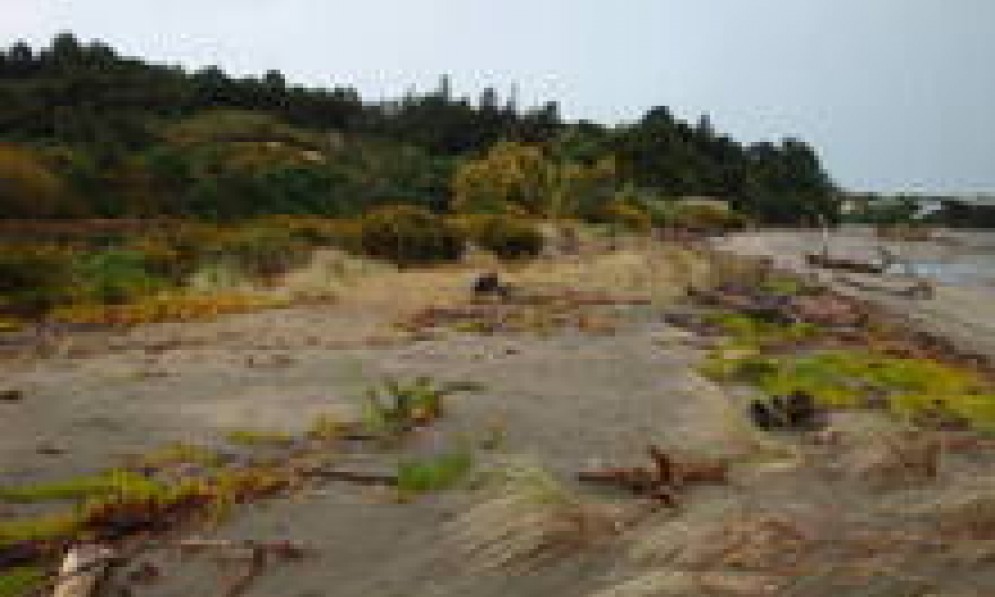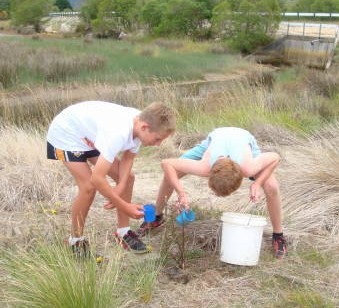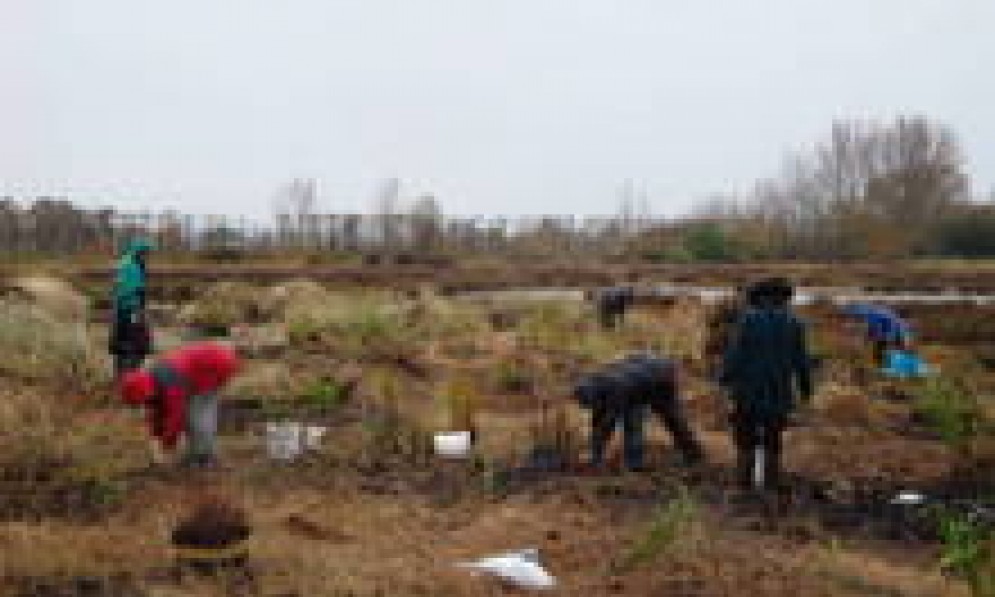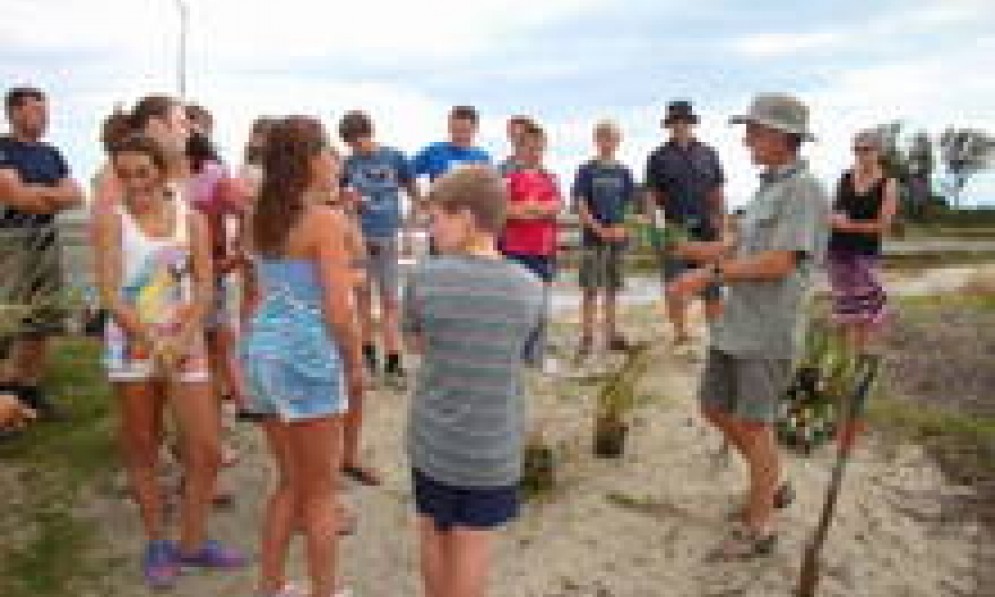The Tapu Bay Restoration Project aims to restore native dune vegetation communities to coastal sand spits in Tapu Bay, just north of Motueka. Almost none of the sandy coastline of Tasman Bay is in its original condition; the sand dunes and sand spits around the Bay are largely covered by marram, gorse and broom, pine trees, and other planted and invasive exotic species. Two sand spits in Tapu Bay are small enough that removal of the invasive weeds and restoration of the indigenous vegetation cover is feasible. The project is doing exactly that, over a three-year period of weed clearance and planting, to be followed by two or more years of maintenance to allow the indigenous plants to become fully established.

Sand spit at Riwaka River mouth before clearance of weeds; vegetation is almost entirely exotic – marram, ice plant, gorse and broom, etc. This area has now been cleared and replanted in spinifex and pingao.

Two young folk planting a coastal ribbonwood at the Riwaka mouth sand spit; where they are working was formerly completely covered in gorse.
The sand spits are both next to the Riwaka-Kaiteriteri Cycle Trail, and will provide an outstanding opportunity for passing cyclists to see what the original shoreline ecosystem might have looked like. The Project provides opportunity for members of the public and students to participate in hands-on conservation; already, working bees have cleared marram grass from the backslope of the beach at the sandspit at the north side of Riwaka River mouth, and have planted several hundred native plants. Riwaka School has recently undertaken to adopt the Project, and to be involved in weeding, planting, and general maintenance of the two sandspits, and several other groups in addition to “Forest and Birders” have worked on removal of exotic and planting of native species.
Anyone is welcome to participate in the Project, through working bees (planting generally in May or August; weed removal at various other times of year) or by propogating and growing plants. For more information about the project, contact Paul at 03-528-9599.

Local conservationists planted several hundred native plants on a wet morning.

Riwaka School students receiving an introduction to the botany of Tapu Bay from Roger Gaskell of DOC Motueka.
